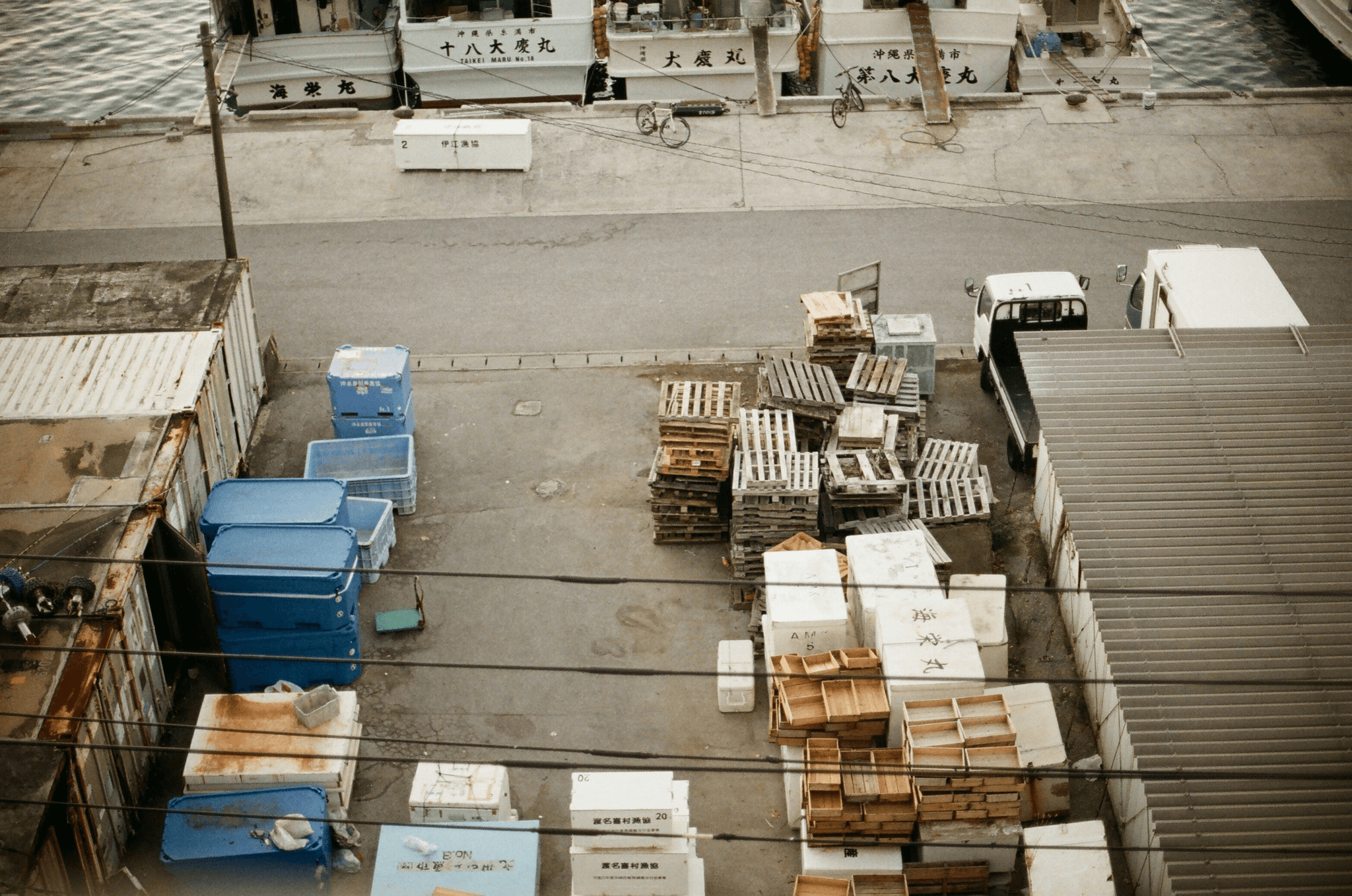Introduction
Navigating the complexities of import duty on machinery from China can be a daunting task for businesses. Understanding the intricacies of tariffs and taxes, trade agreements, and compliance requirements is crucial for successful import operations. At SSOURCING INC., we recognize the importance of considering key factors and the impact on business operations when dealing with import duty on machinery from China.
Understanding Import Duty on Machinery from China
Import duty on machinery from China refers to the taxes and tariffs imposed by customs authorities when importing equipment or tools into a country. These duties are calculated based on various factors such as the type of machinery, its value, and the country of origin. At SSOURCING INC., we are well-versed in navigating these regulations to ensure smooth import processes for our clients.
Key Factors to Consider
When dealing with import duty on machinery from China, businesses must consider factors such as trade agreements, economic conditions, and market demand for specific types of machinery. It's essential to stay informed about emerging trade policies and currency fluctuations that may impact duty rates. SSOURCING INC. provides comprehensive analysis and guidance to help businesses make informed decisions.
Impact on Business Operations
The impact of import duty on machinery from China extends beyond financial implications. It can affect supply chain management, production costs, and overall business competitiveness. At SSOURCING INC., we understand the importance of mitigating these costs through strategic planning and leveraging cost-saving opportunities.
The Basics of Import Duty on Machinery from China

Import duty on machinery from China is a crucial aspect for businesses to consider when sourcing equipment. Tariffs and taxes imposed by customs authorities can significantly impact the cost of importing machinery. Understanding the various components of import duty is essential for effective cost management and planning.
Tariffs and Taxes
Tariffs are taxes imposed on imported goods, including machinery, by the importing country's government. These duties are typically based on the value or quantity of the goods being imported. In the case of machinery from China, tariffs can vary depending on the specific type of equipment and its classification under international trade agreements.
Trade Agreements and Regulations
Trade agreements between countries can influence import duty rates on machinery from China. For example, if there is a free trade agreement in place between China and the importing country, certain machinery may be eligible for reduced or zero-duty rates. It's crucial for businesses to stay updated on these regulations to ensure compliance and maximize cost savings opportunities.
Cost Implications for Businesses
The import duty on machinery from China can have significant cost implications for businesses, impacting their bottom line and overall competitiveness in the market. The additional expenses incurred due to import duties need to be factored into the pricing strategy and budgeting process by SSOURCING INC., to ensure profitability while maintaining competitive pricing in their respective industries.
Factors Influencing Import Duty Rates
Economic Conditions
The economic conditions of both China and the importing country play a significant role in determining import duty rates on machinery. Fluctuations in currency exchange rates, inflation, and overall economic stability can impact the cost of importing machinery from China for SSOURCING INC.
Political Factors
Political factors such as trade agreements, government policies, and diplomatic relations between countries can also influence import duty rates on machinery from China. Changes in leadership or shifts in political alliances can lead to changes in tariffs and taxes, affecting the cost of importing machinery for SSOURCING INC.
Market Demand for Machinery
The market demand for specific types of machinery can affect import duty rates. Higher demand for certain types of machinery may lead to higher import duties, while lower demand may result in lower duties. Understanding market trends and demand patterns is crucial for SSOURCING INC to anticipate potential changes in import duty rates.
Strategies to Mitigate Import Duty Costs

Leveraging Free Trade Zones
When importing machinery from China, SSourcing Inc. can explore the option of leveraging free trade zones to reduce import duty costs. Free trade zones offer tax incentives and duty exemptions, allowing businesses to save on import duties. By strategically locating operations within these zones, SSourcing Inc. can benefit from reduced duty rates and lower overall costs.
Utilizing Duty Drawback Programs
SSourcing Inc. can also take advantage of duty drawback programs to mitigate import duty costs on machinery from China. These programs enable businesses to claim a refund of duties paid on imported goods that are subsequently exported or used in the production of goods for export. By carefully managing their import and export activities, SSourcing Inc. can recover a significant portion of their import duty expenses.
Negotiating with Suppliers
Negotiating with suppliers in China can be an effective strategy for mitigating import duty costs. SSourcing Inc. can work with their suppliers to explore options such as value engineering or product reclassification to lower the declared value of imported machinery, thereby reducing the applicable duty rates. Additionally, negotiating favorable payment terms and delivery arrangements can help offset the impact of import duties on overall procurement costs.
Remember, when it comes to importing machinery from China, strategic planning and proactive measures are essential for minimizing the impact of import duties on your business operations.
Forecasting Import Duty Trends

As the leading importer of machinery from China, SSOURCING INC. must stay ahead of emerging trade policies to anticipate changes in import duty rates. Keeping a close eye on new regulations and agreements will allow us to adjust our cost projections and make informed decisions about our sourcing strategies.
Emerging Trade Policies
With the global trade landscape constantly evolving, it's crucial for SSOURCING INC. to monitor the implementation of new trade policies that could impact import duty on machinery from China. By staying informed about changes in tariffs and trade agreements, we can proactively adjust our procurement plans and manage potential cost increases.
Currency Fluctuations
Currency fluctuations can significantly affect import duty costs for machinery sourced from China. SSOURCING INC. should closely track exchange rate movements to anticipate potential shifts in import duty expenses. By hedging against currency risks or leveraging favorable exchange rates, we can mitigate the impact of fluctuations on our bottom line.
Geopolitical Events
Geopolitical events such as trade tensions, diplomatic disputes, or geopolitical conflicts can have a direct impact on import duty rates for machinery from China. SSOURCING INC. needs to assess geopolitical risks and their potential implications on import duties to develop contingency plans and ensure business continuity.
Navigating the Complexities of Import Duty Compliance

Navigating the complexities of import duty compliance is crucial for SSourcing Inc. when importing machinery from China. Understanding the documentation requirements is essential to ensure smooth customs clearance and avoid unnecessary delays and penalties. It's important to keep track of all required paperwork, including invoices, packing lists, and import licenses.
Documentation Requirements
SSourcing Inc. must ensure that all necessary documentation is in order when importing machinery from China. This includes commercial invoices detailing the value of the machinery, packing lists specifying the contents of each shipment, and import licenses or permits if required by the destination country. Proper documentation is vital for accurate customs valuation and classification, which directly impacts import duty costs.
Customs Clearance Procedures
Customs clearance procedures can be complex and time-consuming when importing machinery from China. SSourcing Inc. should be prepared to provide all necessary documentation to customs authorities and comply with any additional requirements or inspections. Understanding the specific customs clearance procedures at the destination port can help streamline the process and avoid costly delays.
Handling Disputes and Audits
In the event of disputes or audits related to import duty on machinery from China, SSourcing Inc. must be prepared to provide detailed documentation and evidence to support their compliance with customs regulations. Maintaining accurate records of import transactions, including duty payments and valuation methods, can help resolve disputes efficiently and minimize potential financial impacts.
Remember that staying informed about import duty compliance requirements is critical for SSourcing Inc.'s success in importing machinery from China while minimizing costs and maximizing efficiency in their operations.
Conclusion

As we look ahead to 2025, it's crucial for businesses to plan for the impact of import duty on machinery from China. With the potential for fluctuating trade policies and economic conditions, SSOURCING INC. must be proactive in assessing the potential costs and implications of importing machinery from China.
Planning for Import Duty Costs in 2025
Planning ahead is essential to mitigate the impact of import duty on machinery from China. SSOURCING INC. should conduct a thorough analysis of potential duty costs based on forecasted trade policies and economic conditions. By incorporating these costs into budgeting and pricing strategies, businesses can minimize surprises and maintain profitability.
Maximizing Cost Savings Opportunities
In the face of import duty challenges, there are opportunities for SSOURCING INC. to maximize cost savings. Leveraging free trade zones and utilizing duty drawback programs can help offset some of the import duty expenses associated with importing machinery from China. By exploring these options, businesses can optimize their financial strategies.
Adapting to Evolving Trade Policies
As trade policies continue to evolve, SSOURCING INC. must remain adaptable and responsive to changes in import duty regulations. By staying informed about emerging trade policies, currency fluctuations, and geopolitical events, businesses can position themselves to make timely adjustments that mitigate the impact of import duties on machinery from China.

